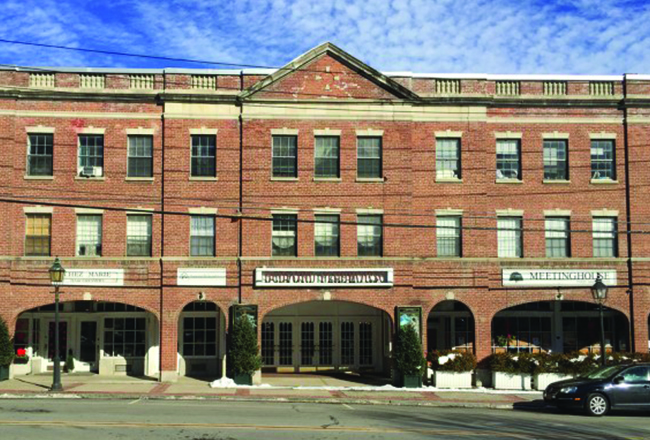The Connecticut Legislature went down to the wire, passing a new $20.86 billion state budget less than an hour before its midnight deadline. The bipartisan budget will now go to Gov. Dannel Malloy, who is expected to sign it.
Among other items, the budget restores some municipal aid to towns that Malloy had cut; reverses health care reductions for the elderly, poor and disabled; does not raise taxes; and does not include funding for electronic tolls. The Senate passed the bill unanimously at 36-0, while the House approved it by a 142-8 margin. One of the “no” votes came from Rep. Jason Perillo (R-Shelton).
In addition to not raising taxes, the Legislature rejected Malloy”™s plan to end the $200 property tax credit on state income tax for the elderly and families with dependents. The budget also cuts the sales tax on the sale of boats from 6.35 percent to 2.99 percent.


The new budget also gives municipalities $70.5 million more in fiscal year 2018-19 than they received this year. One of Malloy”™s more controversial moves of recent vintage came in November when he cut $91 million from statutory grants to cities and towns. However, the budget will also raise the statewide cap on municipal property taxes from a maximum rate of 39 mills to 45 mills.
An additional $29 million in sales tax receipts will be funneled to the Special Transportation Fund. The much-debated issue of bringing tolls back to Connecticut”™s highways is likely to return next year.
Following is a summary of what the new budget will do:
Financial Polices and Taxes:
- Contains no new tax increases.
- Maintains new retiree tax breaks contained in last year”™s bipartisan budget for pension & social security income.
- Maintaining the $200 property tax credit which supports elderly and working families.
- Restores $10 million to the Energy Efficiency Fund.
- Maintains $7 million savings target for a hard hiring freeze.
- Provides $16 million to the Retired Teachers”™ Healthcare Fund to provide a full statutory contribution of 33 percent.
Restores Funding for Core Services:
- Restores funding for the Medicare Savings Program in full to all 169,450 seniors. Cost of $130 million.
- Restores funding for HUSKY A coverage for 13,000 low income working parents who otherwise would lose coverage beginning August 1.
- Provides a 1 percent private provider COLA to all non-profit providers effective July 1, 2018 and incorporates I/DD wage contract changes passed by the legislature earlier this month.
- Increases funding for the Judicial Branch court support staff.
- Increases Vocational Agriculture per pupil grants by $1,000 per slot.
- Provides $5 million for Emergency Placements for those with Intellectual and Developmental Disabilities.
- Restores $18.5 million to magnet schools.
- Provides $1 million for Connecticut Valley Hospital and Whiting Forensic Institute.
- Restores funding for Elderly Nutrition Program, providing $2 million and rejecting the governor”™s proposed cut to this vital service. Also makes this a separate line item to better protect this funding in the future.
- Preserves grants for substance abuse treatment and mental health care.
- Funds the Connecticut Temporary Assistance for Needy Families (TANF) with $5 million needed in the fund.
- Fully funds aid to disabled adding in $1.4 million.
- Fully funds Old Age Assistance with an additional $1.8 million.
- Protects funding for fire training schools and eliminates governor”™s cut.
- Restores funding for the Hispanic Programs in DSS providing funding to nonprofits.
- Provides funding for Puerto Rico evacuees in housing and provides municipalities with a significant influx of evacuees with increased Education Cost Sharing Grants.
- Continues tourism and cultural programs funding.
- Does not implement any cuts to Care 4 Kids.
- Continues enhanced reimbursement rate for primary care providers.
- Provides needed funding for dairy farmers
- Funds the Honor Guard
- Provides $16.2 million to the Board of Regents for fringe benefit support.
- Restores $2 million to fully staff the Connecticut state veterans hospital”™s critical care unit.
Protects Municipal Aid:
- Restores full funding for Municipal Aid. $28.4 million more than appropriated in FY 2019 as originally enacted. $70.5 million more in municipal aid than FY 2018.
- Fully funds the FY 2019 enacted Education Cost Sharing grants.
- Fully funds Renters Rebate program, protecting 48,000 people. No longer shifts the expense onto municipalities.
Funds Transportation:
- Fully funds the Special Transportation Fund resulting in surpluses in the fund in each of the next 5 years (accelerates the diversion of sales tax from sale of automobiles at car dealerships into FY 2019 at 8 percent). This allows us to fully fund transportation infrastructure projects.
- Fully funds rail and bus operations.
- Enacts “Prioritize Progress” in part, a long-term plan to support infrastructure improvements without taxes or tolls.
Implements Recommendations from the Commission on Fiscal Stability and Economic Growth as follows:
- Study on pro-growth rebalancing of state taxes.
- Study on revenue and expense optimization.
- Study on reforming of the Teachers”™ Retirement System.
- Implements municipal relief by allowing schools to have volunteers perform work such as buildings and grounds maintenance.
“This is a good budget that focuses on predictability and stability for businesses and families across the state,” said State Sen. L. Scott Frantz (D-Greenwich). “It fully funds the Special Transportation Fund without tolls and also enacts Prioritize Progress ”“ a Republican proposal which provides for a long-term transportation funding plan. This is a pro-growth budget that also includes a decrease in certain sales taxes and also fully restores funding for the Medicare Savings Program. This budget puts Connecticut on a more predictable path and I was happy to be part of crafting this budget and voting in favor this bipartisan budget.”
“There is more work to be done and no side got everything they wanted in this final agreement,” remarked Senate Republican President Pro Tempore Len Fasano (R-North Haven). “However, what we passed today is a solid plan for the next fiscal year that meets the needs of taxpayers without making new promises the state cannot afford to keep.
“If lawmakers did not work together our state budget would have been left in the hands of Governor Malloy to adjust it as he sees fit,” Fasano continued. “We’ve seen what that looks like before and it is not pretty. Republicans have offered multiple budget proposals this year and today’s bipartisan plan reflects many of our top priorities.”
Malloy, who is not running for re-election, took an unusually humorous approach in his remarks to the legislature following its vote. “Since this is my last address to you, I”™m going to spend the next few hours airing some of the grievances I didn”™t get to over the last eight years,” he quipped to a round of laughter.
“I”™ve worked well with many of you. I wish you well,” he added. “And to the rest of you ”¦ well, you better be careful or else I just might endorse you in your elections this fall.”
Beyond the state budget, the governor said, “I am optimistic that the General Assembly will continue to make Connecticut a fairer, healthier, more just place to work and live.
“We have accomplished a great deal together in these past eight years,” Malloy concluded. “I”™m proud to have fought these battles alongside all of you. And I”™m proud to have served as your 88th governor.”



















